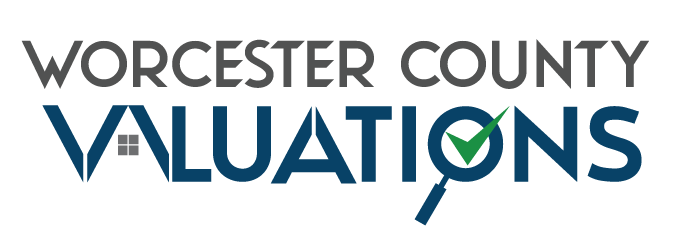Accuracy in Mortgage Lending Valuations
Accuracy in Mortgage Lending Valuations

Securing a mortgage is a pivotal step in the journey to homeownership or property investment. At the heart of this process lies the mortgage lending appraisal—a critical evaluation that determines a property’s market value and influences loan approvals. For lenders and borrowers in Massachusetts and Connecticut, expert valuation services ensure accuracy, reliability, and confidence in every transaction. These appraisals provide the foundation for informed financial decisions, balancing the interests of all parties involved.
The Importance of Mortgage Lending Appraisals
A mortgage lending appraisal is more than a formality; it’s a safeguard for both lenders and borrowers. Lenders rely on appraisals to confirm that the property’s value supports the loan amount, reducing the risk of over-financing. For borrowers, an accurate appraisal ensures they’re not overpaying for a property or facing unexpected challenges during the loan process. This objective assessment establishes trust, making it an essential component of any mortgage transaction.
Appraisals for mortgage lending focus on determining the fair market value of a property based on current conditions. This involves analyzing factors such as the property’s size, condition, location, and recent sales of comparable properties. In dynamic real estate markets like those in Massachusetts and Connecticut, where values can vary significantly from one neighborhood to another, local expertise is crucial for delivering precise valuations.
The Role of Certified Appraisers
Certified appraisers bring professionalism and impartiality to the mortgage lending process. Adhering to standards like the Uniform Standards of Professional Appraisal Practice (USPAP), these experts produce valuations that meet the rigorous requirements of lenders, government agencies, and regulatory bodies. Their work is grounded in detailed research and analysis, ensuring that every appraisal is defensible and aligned with market realities.
For mortgage appraisals, appraisers must balance speed with accuracy. Lenders often operate on tight timelines, and borrowers are eager to move forward with their purchase or refinance. Experienced appraisers streamline the process without compromising quality, delivering clear and concise reports that facilitate smooth loan approvals. Their ability to interpret local market trends—whether in bustling urban centers or quiet rural areas—adds significant value to the appraisal.
Benefits for Lenders and Borrowers
Mortgage lending appraisals offer distinct advantages for all parties. For lenders, a reliable appraisal minimizes financial risk by ensuring the loan amount is proportionate to the property’s value. This is particularly important in cases of default, as it helps protect the lender’s investment. Appraisals also support compliance with federal regulations, such as those set by Fannie Mae, Freddie Mac, or the Federal Housing Administration (FHA), which often require specific appraisal standards.
Borrowers benefit from appraisals by gaining clarity on their investment. A well-executed appraisal confirms that the property’s price aligns with its market value, preventing overpayment and providing peace of mind. In competitive markets, where bidding wars can drive up prices, an appraisal acts as a reality check, helping buyers make sound financial choices. For those refinancing, appraisals determine the home’s current value, which directly impacts the loan terms.
Customized Services for Different Properties
Mortgage lending appraisals cover a wide range of property types, from single-family homes to condominiums, or multi-family units. Each property presents unique challenges, and appraisers customize their approach to reflect these differences. For example, valuing a condo requires consideration of homeowners’ association fees and shared amenities.
In Massachusetts and Connecticut, appraisers must account for regional market nuances. Urban areas like Boston or New Haven often see higher property values due to demand, while rural communities may have more stable but lower price points. By staying attuned to these trends, appraisers provide valuations that accurately reflect the property’s worth in its specific context. This localized knowledge is especially valuable for lenders and borrowers navigating diverse real estate landscapes.
The Appraisal Process: What to Expect
The mortgage appraisal process begins with a request from the lender, often coordinated through an Appraisal Management Company (AMC) to ensure independence. The appraiser schedules a property inspection, during which they assess its condition, features, and any improvements, such as updated kitchens or energy-efficient systems. They also measure the property’s square footage and note any factors that could affect its value, like proximity to schools or transportation.
After the inspection, the appraiser researches comparable properties, or “comps,” to establish a baseline for the valuation. These comps are typically recent sales of similar properties in the same area, adjusted for differences in size, condition, or amenities. The appraiser then compiles their findings into a detailed report, which includes the property’s estimated market value, supporting data, and an explanation of the valuation methodology.
Throughout the process, clear communication is key. Reputable appraisal firms prioritize responsiveness, addressing questions from lenders or borrowers promptly. The final report is delivered to the lender, who uses it to finalize the loan decision. In some cases, borrowers may receive a copy of the appraisal, providing transparency into the valuation.
Choosing a Trusted Appraisal Partner
Selecting a skilled appraisal firm is essential for a successful mortgage transaction. Look for appraisers with extensive experience in Massachusetts and Connecticut, as well as a track record of delivering accurate, timely reports. Certifications from organizations like the Appraisal Institute can indicate a high level of expertise and adherence to ethical standards.
Lenders should prioritize firms that understand the specific requirements of mortgage appraisals, including compliance with federal guidelines and lender-specific criteria. Borrowers, while typically not choosing the appraiser directly, can benefit from working with lenders who partner with reputable firms. A trusted appraisal partner ensures the valuation process is smooth, transparent, and aligned with the needs of all parties.
Building Confidence in Mortgage Transactions
Mortgage lending appraisals are a cornerstone of the homebuying and refinancing process, providing the clarity and assurance needed for sound financial decisions. By delivering precise, market-based valuations, appraisers help lenders manage risk and borrowers invest wisely. In the diverse markets of Massachusetts and Connecticut, where local expertise is paramount, professional appraisal services make all the difference.
Whether you’re a lender seeking reliable valuations or a borrower pursuing your dream home, partnering with a skilled appraisal team sets the stage for success. Their commitment to accuracy, timeliness, and clear communication ensures every mortgage transaction is built on a foundation of trust and precision. Contact Worcester County Valuations to learn more.

